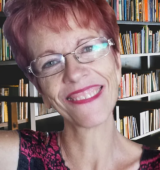
Dissociative Disorders therapists in Anthem, Arizona AZ

Lynda Griffin Bull
Counselor/Therapist, MC, LPC
I am devoted to treating the legacy of trauma which is experienced in symptoms such as depression, anxiety, foggy thinking, difficulty managing stress, feeling stuck, impulsivity, relational problems, addictions, sleep disorders & chronic pain/illness; I also work with cancer patients and families.
Dr. Amanda Roberts
Psychologist, PhD Clinical Psychology, Masters in Marriage Family Therapy
There are few clinicians skilled in the treatment of these complex disorders. Dr Roberts has many years of experience working with the traumatic fallout of complex trauma. He has specialist training in dissociative identity disorder and structural dissociation.
Mary Knoblock
Hypnotherapist, Licensed RTT Practitioner, Clinical Hypnotist, Duke Certified Health Coach, Spiritual Counselor
We can work through your dissociated disorders with different tools. Clients have found the emotion code, and RTT to be very helpful in managing their dissociative disorders.
Dr. Adam Shafer
Psychologist, Psy. D., M.A.
When people experience trauma, the mind has a wonderful way of protecting us from the pain that sometimes comes at the service of disconnecting from ourselves.
Nancy Hayes-Gary, Psy.D.
Psychologist, Licensed Psychologist, MD , Psy.D.
Grounding, soothing, and leaning to separate out past trauma from present reality helps decrease dissociation. I also approach this with some of the approaches I’ve already mentioned. People who dissociate are often plaques with past thoughts or memories of a very difficult time. Exploring childhood patterns of family interactions gives one a key to understanding their dissociation as a trauma response. Learning other trauma responses that don’t come with the down sides of dissociating, like memory problems or depersonalization/derealization anxiety.





